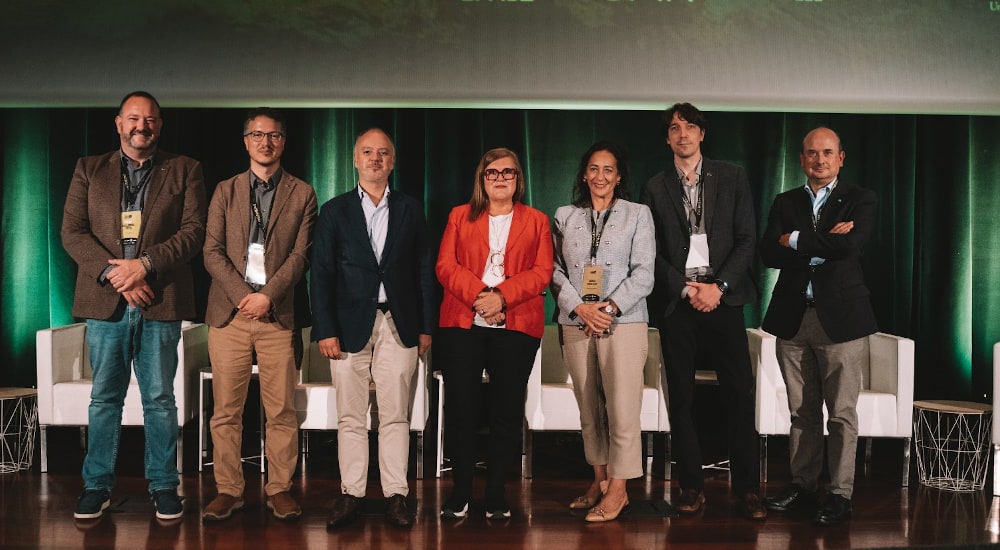New Space Spain 2024 consolidates the strategy to position Spain at the forefront of the space industry
September 27, 2024
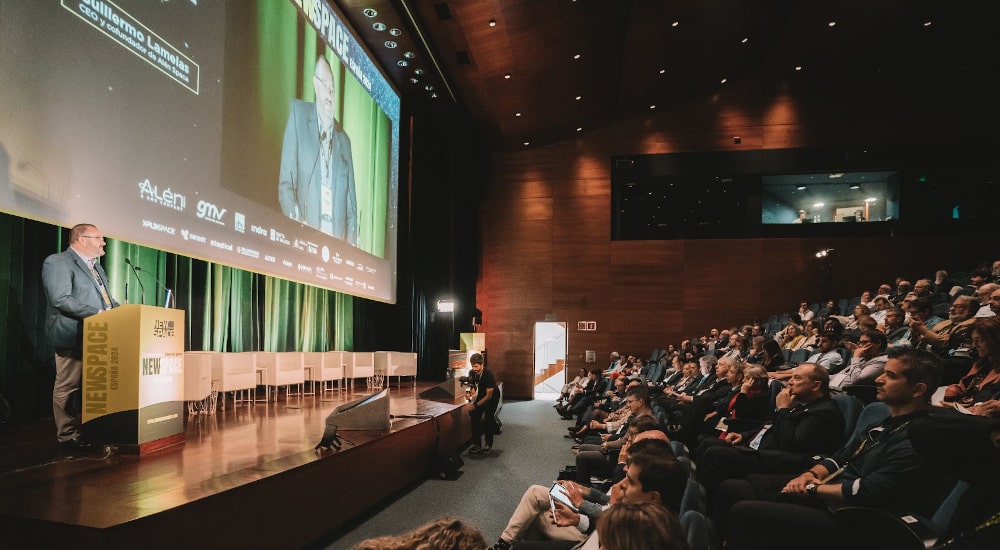
The third edition of New Space Spain has come to an end today after two intense days, featuring over 40 speakers, 270 professionals, and 120 companies. The conference broke participation records from previous editions and turned Vigo into the epicenter of Spain’s space industry through a packed program of conferences and panel discussions.
Under the motto “The path to global leadership,” attendees at Sede Afundación Vigo had the opportunity to hear the most renowned representatives of the sector in Spain and Latin America discuss their key projects and the challenges faced by companies, public institutions, startups, research centers, and universities developing space-related projects.
The event also analyzed the key capabilities the sector possesses to turn Spain into a relevant player among the countries with a leadership position in the space industry.
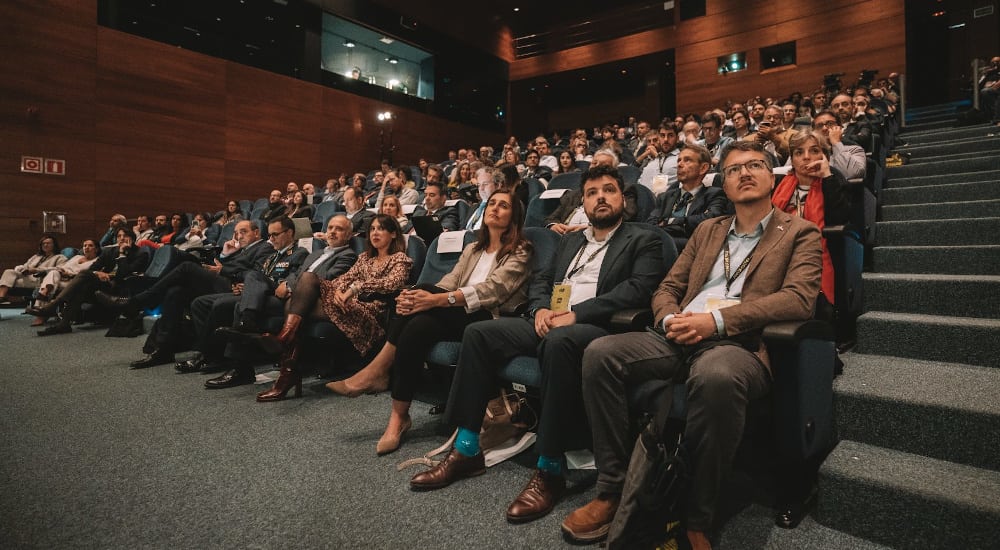
Opening and welcoming attendees on the first day
The Galician Minister of Economy and Industry, María Jesús Lorenzana, and the State Delegate in the Free Trade Zone Consortium of Vigo, David Regades, inaugurated the event. They highlighted the spirit of collaboration between institutions and companies to bring Galicia and Vigo into the national and international spotlight of this strategic industry, which has “tremendous industrial and economic potential.”
Guillermo Lamelas, CEO of Alén Space and event organizer, emphasized the sector’s virtues and advancements since the first edition of the congress in 2018. Over these six years, the space industry has changed dramatically, especially in the last two years, when “the sector has experienced strong growth.”
Lamelas detailed the main projects currently being developed by the companies and organizations participating in the congress, with special mention of the recent creation of the Spanish Space Agency (AEE) and the Space Command (MESPA), both present at the event. “Now is the time to maximize synergies and combine public and private efforts and resources to take advantage of the great opportunities being generated and move forcefully toward global leadership, which is the driving force behind this congress,” he said.
Services, security, and capabilities of Spain’s space industry
In the panel discussion, representatives from Satlantis, Startical, Sateliot, Telespazio Ibérica, and Geosat discussed the significant innovation being undertaken to lead space services and the internal adaptation processes within New Space companies to serve non-space customers. Some participants felt that more investment is needed in Europe and that R&D should come from final contracts.
In the conference “Space: A key area for security,” Lieutenant Colonel Juan Soriano Paradinas from the recently created Space Command (MESPA), part of the Spanish Air and Space Force, stated that the Spanish space sector is undergoing a revolution, driven by an exponential increase in satellites in orbit: “Space is essential for security because the services it provides are crucial for modern life and are also limited resources that need protection.” The Lieutenant Colonel also highlighted that the creation of this new unit recognizes the aerospace sector “as an enabler and force multiplier,” and he assured that the future of space security is based on three pillars: international cooperation, the need for new regulations, and technological innovation.
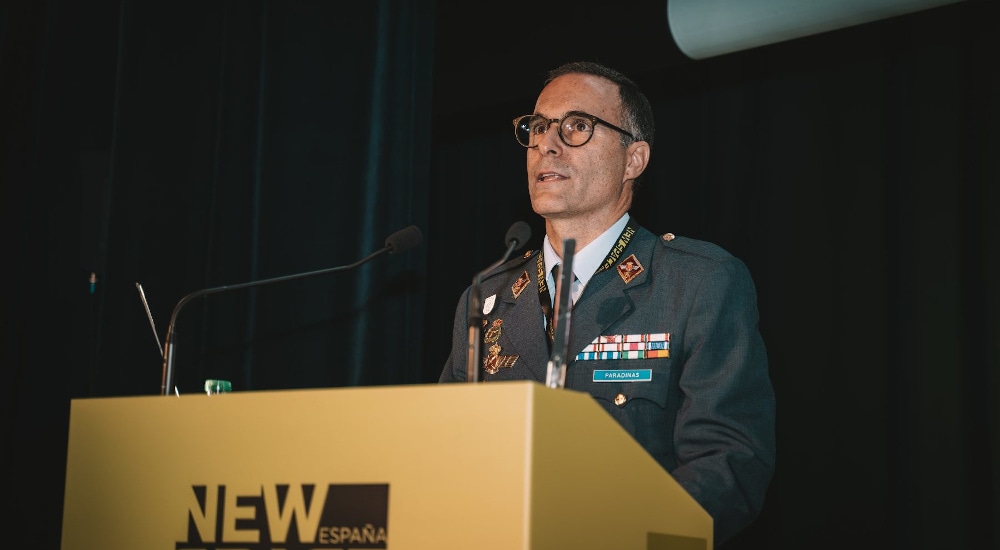
The morning session continued with a second panel discussion titled “Key capabilities for global leadership,” featuring prominent companies in the sector, including Satlantis, DHV Technology, PLD Space, Arkadia Space, UARX Space, and ACORDE. The experts stressed that “it is crucial for Europe to be independent” from other space powers and that technology companies need to be agile and “not afraid to fail.” They also debated whether there is “over-regulation” in Europe, making competition with other countries more challenging, or whether there is a deeper issue that forces Europe to look, “for better or worse,” at powers like the United States.
The morning closed with a new segment dedicated to startups and entrepreneurial projects in the space sector, one of the main innovations of this third edition of New Space Spain. Galician companies Kreios Space and Valar Space, both participants in the Xunta de Galicia’s BFAero accelerator; the UVigo SpaceLab project from the University of Vigo; Andalusian Orbital Boost Aerospace; and Madrid-based Orbital Paradigm presented their business models and future plans to the more than 270 congress attendees.
Prominence for the European industry and the Spanish Space Agency
The first panel discussion of the afternoon session featured representatives from PLD Space, GMV, Airbus, Deimos Space, and Indra Espacio, who discussed the opportunities emerging in European space, moderated by Roberto Prieto-Cerdeira, head of the LEO-PNT project at the European Space Agency (ESA). The experts emphasized the importance of public opinion recognizing the relevance of space in their lives. They also stressed the need for ESA and institutions to act as anchor clients for companies in the sector, highlighted the need to reduce bureaucratic procedures, and insisted that Spain has demonstrated its ability to develop any project.
In the conference “Challenges of the Spanish Space Agency (AEE),” Juan Carlos Cortés, AEE Director, stated that the agency’s biggest challenge “is to meet the sector’s expectations.” He explained that its creation “not only responds to the sector’s urgent need but also to the strong political support behind its formation and the result of a collective effort.” According to Cortés, one of the agency’s key pillars will be its ability to devise a strategic plan for the sector and generate medium-term forecasts, a crucial aspect for ensuring the success of its projects: “We must not be reactive but prepare for the future.” With a forward-looking vision, he stressed that the agency does not identify with the traditional space approach or the emerging New Space approach but is instead oriented towards a Next Space, where innovation and foresight will set the course.
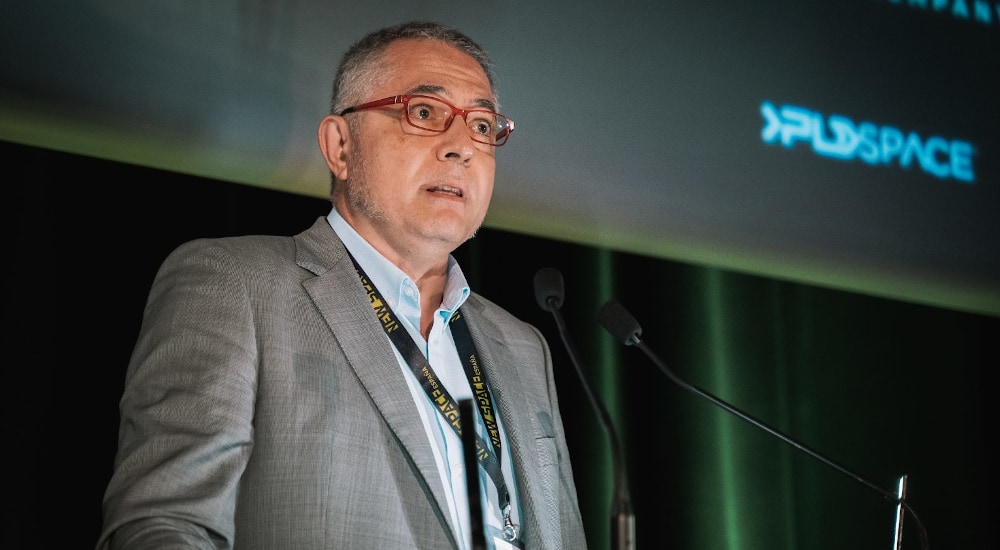
In the final panel discussion of the afternoon, “Joining Forces: AEE and Industry,” professionals representing DHV Technology, Startical, and GMV, along with Isabel Pérez Grande, Director of Science, Technology, and Innovation at the Spanish Space Agency, discussed the importance of an inclusive and global vision for the sector’s development. They highlighted both the economic challenges and the need to encourage young entrepreneurship, especially within the framework of the so-called Next Space. They agreed that the Spanish Space Agency will play a key role in optimizing resources and ensuring decisions are made in collaboration with all actors along the value chain. Moreover, they emphasized the importance of each European country defining its own space strategy, aligned with European regulations, and of keeping space accessible and sustainable for the future.
Vigo mayor, Abel Caballero, concluded the first day, expressing his excitement about hosting the event in the city and emphasizing the aerospace sector’s importance for the country’s progress. “We are thrilled to have you here in Vigo,” he said, expressing his confidence in the companies present, which have demonstrated “an infinite technological capacity.” Caballero stressed that collaboration between all entities contributes to shaping a strategic sector for Spain’s economic and technological development, recalling that during his tenure as Minister of Transport, Communications, and Tourism, the launch of the Hispasat satellite was prepared.
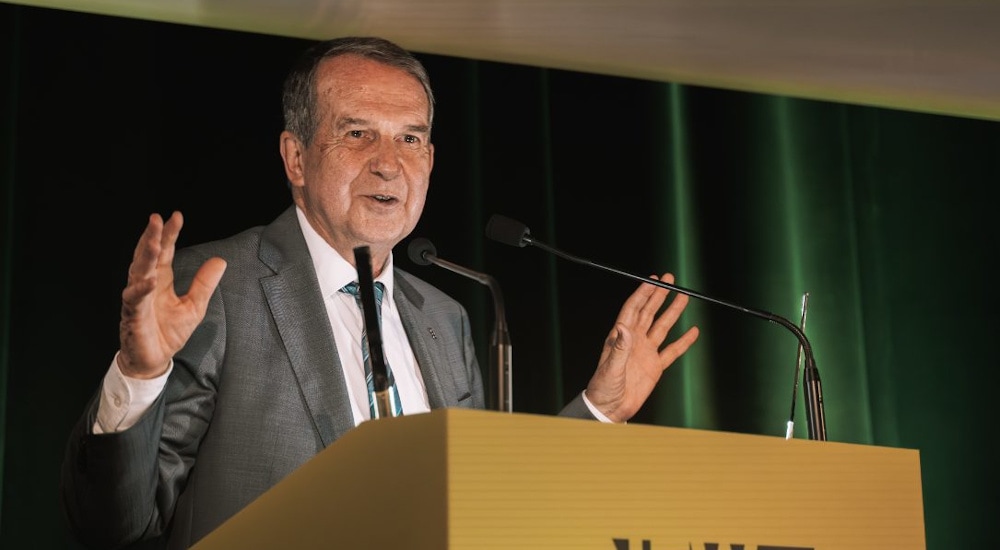
Public sector role analysis on the second day
On the second and final day, the congress delved into the role of public players in Spain’s New Space. In a panel discussion moderated by Teresa Riesgo, Secretary General for Innovation at the Ministry of Science, Innovation, and Universities, representatives from renowned public institutions in research, such as the Aerospace Strategic Group at the University of Vigo, the National Institute for Aerospace Technology (INTA), the Canary Islands Institute of Astrophysics (IAC), the Polytechnic University of Madrid (UPM), and the Space Sector Promotion Area of Catalonia (IEEC), highlighted the importance of strengthening a business network that allows professionals in the sector to build their careers in Spain, the critical role of public-private collaboration in seizing New Space opportunities, the urgency of ensuring the country’s technological and economic progress, and the need to integrate universities into the sector’s daily activities by training engineers and PhDs to meet the industry’s demands.
Secretary General for Innovation, Teresa Riesgo, highlighted the sector’s momentum in recent years, with initiatives like the Strategic Project for Economic Recovery and Transformation (PERTE) Aerospace, which has mobilized around €2.8 billion in public funds to support the creation of companies and coordinate the sector. Among its projects, she emphasized the creation of the Spanish Space Agency (AEE) last year.
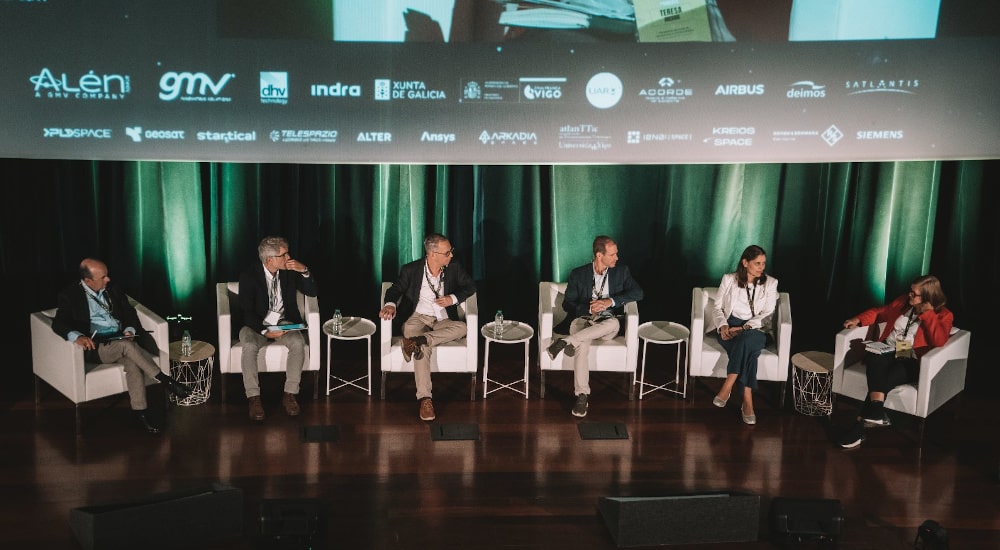
New Space Spain 2024 continued with the conference “Integrating the Best of Both Worlds,” led by Miguel Ángel Molina, Space Council Chairman at GMV. Throughout his presentation, Molina addressed the evolution of the New Space concept and how this approach has transformed the space industry by incorporating technological innovation and greater private-sector participation. However, following the line proposed the previous day by Juan Carlos Cortés, Director of the Spanish Space Agency, Molina suggested moving towards a new term: Next Space, as the current terminology is becoming obsolete in the face of future challenges. He emphasized that this Next Space must adapt to market needs, foster public-private collaboration, and remain focused on sustainability and accessibility. According to Molina, “It is the market that truly sets the guidelines.”
Next, in the conference “Boosting New Space within ESA,” Emilio Vez, Head of the Industrial Policy Section at the European Space Agency (ESA), emphasized how the union between ESA and New Space has transformed project management, accelerating time-to-market and focusing solutions on the client. Vez pointed out that New Space is not a type of company but rather an approach that has positively impacted sectors like finance. He also highlighted the impact of programs like Boost!, NAVISP, and InCubed in promoting the commercialization and adoption of space technologies. As for Spain, he highlighted its key role in the Hera planetary defense mission.
At the end of the conference, Luis Martín, co-CEO of Arribes, took over to present the ESA Technology Brokers program, designed to facilitate the commercialization of space technologies. “We are not an R&D or innovation program; we are a sales program,” said Martín, emphasizing the mission of maximizing the benefits of space technology for Europeans. He also highlighted that Spain is the only country with all four Technology Brokers programs: Technology Brokerage, Spark Funding, IP for Commercialization, and Prepare 4 Space.
A window into Ibero-American New Space
As the closing session of New Space Spain 2024, representatives from the company Astralintu Space Technologies and public Ibero-American institutions such as the University of Brasilia, the Chilean Space Association (Achide), and the Secretariat of Science and Technology of the Province of Salta (Argentina), discussed the various realities and challenges that Ibero-American countries face in the space sector. This roundtable, titled “A Window into Ibero-American New Space,” was moderated by María Cristina Vives Ruiz, Space Business Line Director at Indra Espacio.
The experts emphasized the importance of strengthening international cooperation, noting that private companies must work hand in hand with governments that regulate their activities. They stressed the perception that the industry lacks funding and the need to develop unique value propositions. According to the panelists, this debate highlighted the need for a collaborative approach that allows Ibero-America to capitalize on its capabilities in the New Space sector.
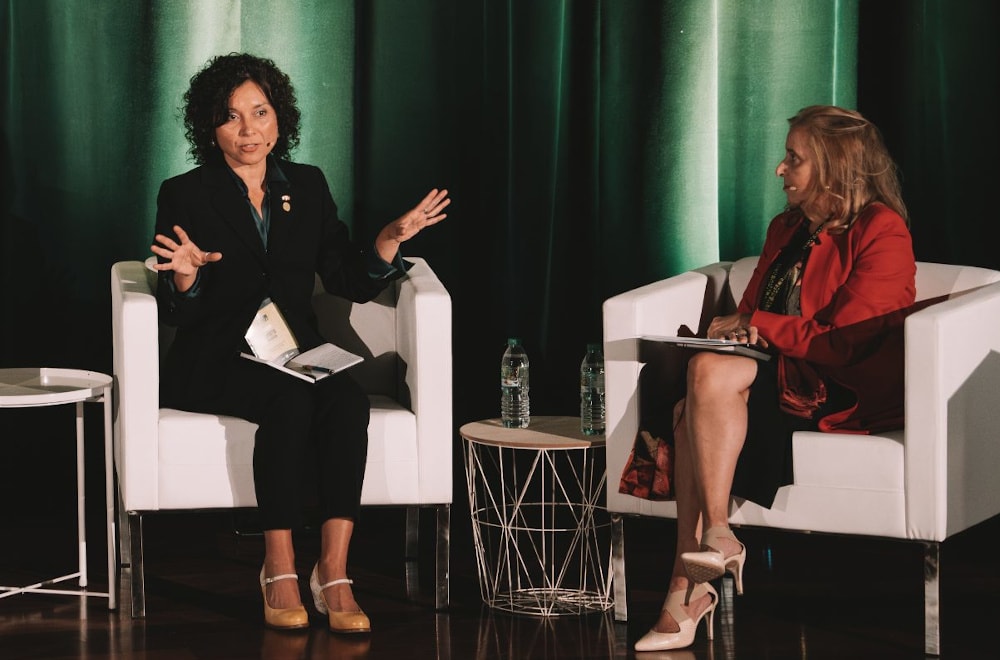
New Space Spain as a meeting point
At the close of the congress, Antonio Vázquez, Head of Business Development at Alén Space, stressed that “the sector’s ambition requires agile and efficient bureaucracy.” For his part, David Regades, State Delegate at the Vigo Free Trade Zone Consortium, highlighted the evolution of the space field in Galicia, thanks to the work of Fernando Aguado, Director of the Aerospace Group at the University of Vigo, and the support of GMV. He affirmed that “New Space Spain is a meeting point and a brand for the future.” Finally, Teresa Riesgo, Secretary General of Innovation, emphasized the growth of the aerospace sector, noting that the government’s commitment has been significant. She expressed optimism about the future and the ministry’s openness to new ideas and projects.
This third edition of New Space Spain, organized by the Galician company Alén Space, was sponsored by GMV, DHV Technology, and Indra as the main sponsors, along with the support of public institutions such as the Vigo Free Trade Zone Consortium, the Xunta de Galicia, and the atlanTTic Research Center for Telecommunication Technologies at the University of Vigo. It also received sponsorship from other leading companies in the space industry, such as UARX Space, ACORDE, Airbus, Deimos, Geosat, PLD Space, Satlantis, Startical, Telespazio, Alter Technology, Ansys, Arkadia Space, IENAI Space, Kreios Space, Rohde & Schwarz, and Siemens.
